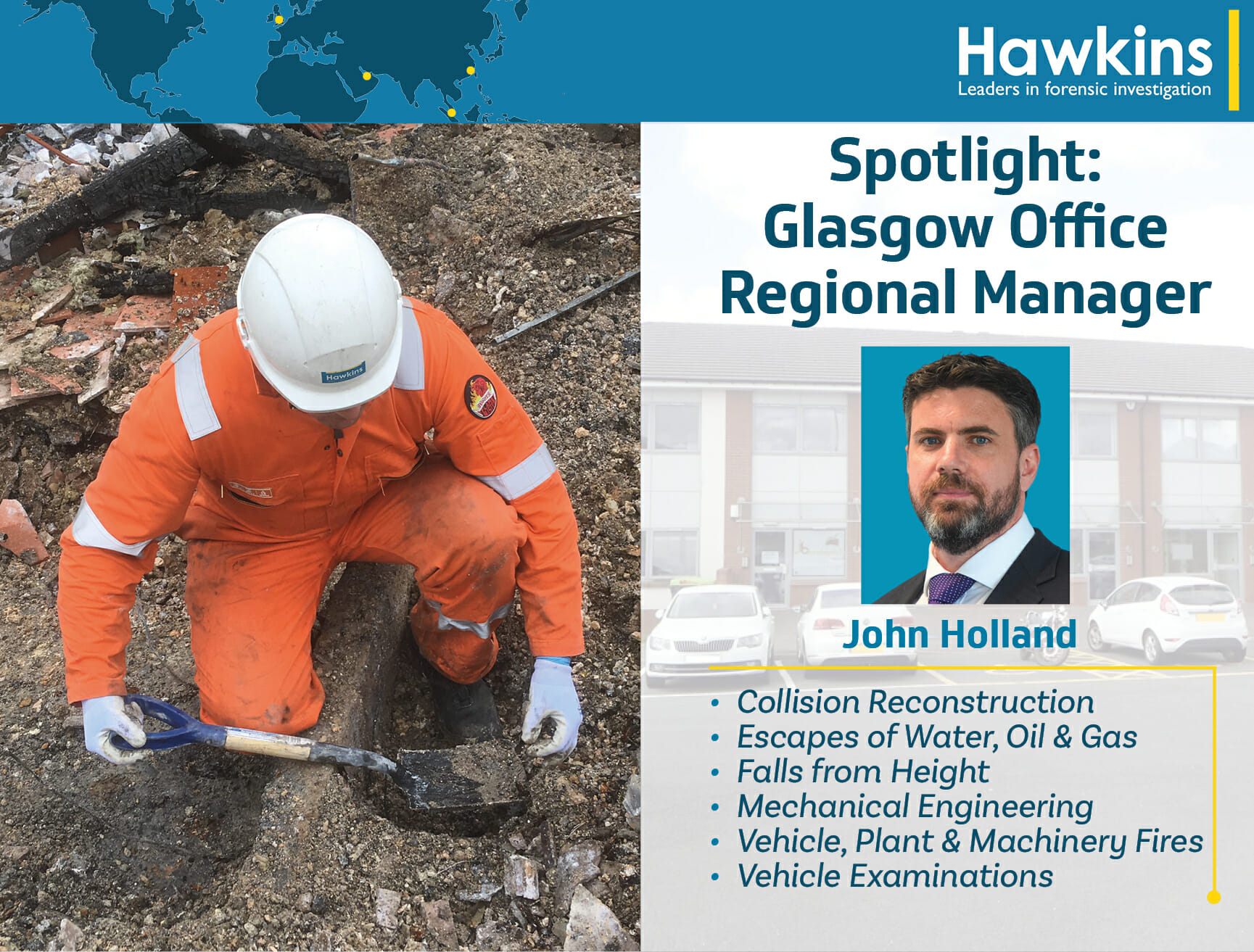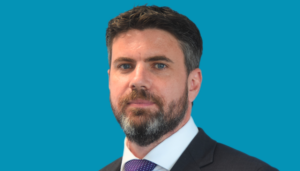We recently interviewed John Holland, Regional Manager of our Glasgow Office, to shine a spotlight on what it is like to work as a forensic investigator and what drew him to Hawkins.
John joined Hawkins in 2007, and in 2016 he became the Regional Manager of our Glasgow Office. He specialises in the investigation of fires, explosions, escapes of fluid, engineering failures, personal injuries – particularly those involving plant and machinery– building damage resulting from water ingress, and road traffic collisions.
Find out more about John and his role with Hawkins in our Q&A with him below, and be sure to register for our Glasgow Office Webinar Series, when John and his team will be presenting a series of webinars over the coming weeks, each focussing on a different area of specialism.
How did you get into your chosen field?
In terms of mechanical engineering, I have always had an inquisitive mind. As a child I liked figuring out how things worked by taking them apart…but much to my mother’s irritation, not always putting them back together again. The Forensic Engineering aspect was more by chance, in that I was moving to Scotland and saw a position with Hawkins. I thought I had no chance of getting the job, but I applied anyway and here we are, over 15 years later.
What attributes do you think are needed to be a forensic investigator?
A combination of an inquisitive mind, practical experience, an ability to apply logic to available evidence, and an ability to explain complex technical matters to an educated lay audience in a way that they understand, without either oversimplifying the issues or patronising them.
What is the most interesting case you have ever investigated?
I once noticed a single bolt of lightning on the horizon whilst at a football match. On the following day I was instructed to investigate a fire, which it transpired had been caused by said lightning strike.
Which case was most difficult?
Most cases are difficult in their own ways, but I do a lot of work involving serious personal injuries and/or fatalities. The emotional side of those jobs is the most challenging. Among those, one case in particular comes to mind in which a young man was killed. Another was effectively blamed, unjustly, and from an engineering perspective completely erroneously, resulting in significant emotional turmoil for him and those around him for many years, until my investigation showed he was not to blame at all.
“I enjoy getting to the bottom of seemingly complex issues and explaining my reasoning to others.”
What do you love most about what you do?
I enjoy getting to the bottom of seemingly complex issues and explaining my reasoning to others. I have also investigated several personal injury cases where my work has uncovered serious underlying design defects in equipment or machinery which could then be rectified to prevent further incidents.
What is the most challenging part of your job?
There can be a lot of time pressure when you are handling multiple cases, especially if they litigate and timescales are imposed by the Court, so sometimes it can be an incredibly stressful job.
What is the biggest misconception people have about your line of work?
That CSI or Silent Witness are accurate reflections of our daily work life. In reality it’s much less glamorous. You can be exposed to the elements for extended periods while investigating a scene in winter, or working in confined spaces with limited access and then there is also the human side where people have experienced a devastating loss or tragedy; therefore, the job can be demanding both physically and emotionally.
What advice would you give to somebody setting out on their career to be a forensic investigator?
I would recommend obtaining a good degree in a subject area that you enjoy and then gaining as much post-graduate practical experience as possible, before attempting to embark on a career as a forensic engineer.
What is the top destination on your must-visit list and why?
I worked in Peru in the early 2000s, but never took the time to enjoy the place as a tourist, so I would like to go back, meet up with my former colleagues and take in the sights.
Describe something you have done, but you will never do again?
Go Ape. I am terrified of heights.
Name something you enjoy that people may not know about you.
Musical theatre.
If you have any questions for John, or any of the members of the Glasgow Office before or during their upcoming webinar series, feel free to contact us.

 Italiano
Italiano
